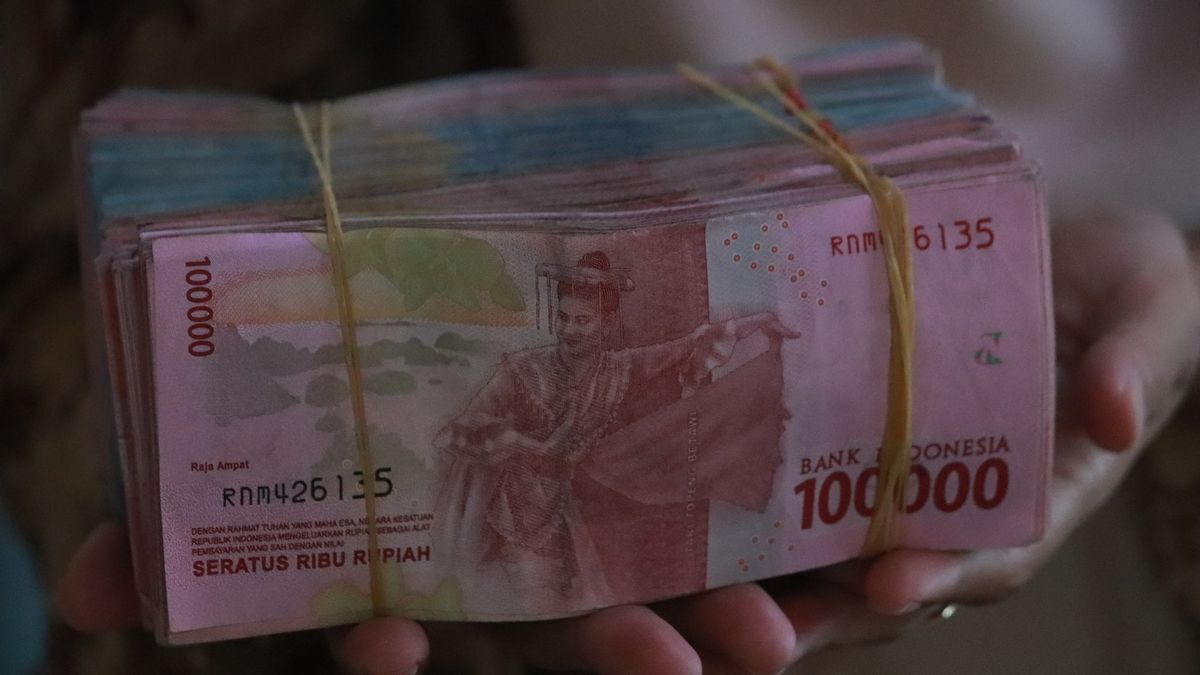JAKARTA - The government's plan to reimpose the tax amnesty or tax amnesty will soon roll out. This plan was rejected by the trade unions. However, entrepreneurs who are members of the Indonesian Chamber of Commerce and Industry (Kadin) welcomed the plan positively.
President of the Confederation of Indonesian Trade Unions (KSPI) Said Iqbal said Said Iqbal said that since the idea of the tax amnesty volume II emerged, his party immediately took a firm stance. KSPI rejects the tax amnesty plan volume II.
"KSPI's attitude was clear from the start regarding the tax amnesty, from the beginning of volume I it had refused. Even KSPI together with several labor unions filed a judicial review lawsuit to the Constitutional Court against the Tax Amnesty Law Volume I which was passed several years ago," he said at a press conference in private virtual, Friday, May 28.
According to Iqbal, the tax amnesty is not the only way to bring in investment or funds from Indonesian citizens who are abroad.
He said, improving the business climate, openness and measurable transparency and accountability are much more attractive to investors and Indonesians whose funds are abroad to be withdrawn to Indonesia.
"The tax amnesty has failed and it has been reminded again and again. All countries that implement the tax amnesty have failed. In the end, what appears is negative for business, namely funds that are considered 'illegal funds' enter into legality," he explained.
Therefore, KSPI asked the DPR RI not to include the tax amnesty in the national legislation program (Prolegnas) in 2022.
"Don't play games anymore, don't grant the government's wish to carry out the tax amnesty volume II. On what basis is the tax amnesty in volume II able to include investments from Indonesian funds abroad to enter Indonesia? Volume I of the tax amnesty failed," he said.
Iqbal emphasized that his party would not remain silent regarding the government's plan related to the tax amnesty volume II. "The tax amnesty system is unfair," he said.
Unlike the KSPI, the businessmen who are members of the Indonesian Chamber of Commerce and Industry have actually welcomed the government's plan regarding tax amnesty volume II.
Chairman of the Chamber of Commerce and Industry Rosan Roeslani stated that entrepreneurs responded positively to the planned tax amnesty volume II. Moreover, said Rosan, Kadin sees that the current challenge for government tax revenues has decreased.
"Essentially, we are from the business world, if the discussion has been carried out properly, and involves all stakeholders and is carried out, we will respond positively," he said, in the national webinar 'vaccines and national economic recovery', Friday, May 28.
Rosan said that in the first volume of tax amnesty, people had doubts that it could work well. However, because of the commitment, it is run by the government. This, said Rosan, led to the discourse on tax amnesty volume II.
Furthermore, Rosan said that the tax amnesty in several countries was indeed carried out more than once. In Indonesia, the government implemented a tax amnesty volume I in 2016.
"Indeed, in many countries it has also been carried out, and not only once. Therefore, let's leave it to the DPR and the government to do it. We hope for the best results. We believe that what the government is doing together with the DPR and the business world is what all of us are doing." " he explained.
For your information, the government opens the option of continuing the tax amnesty program or tax amnesty volume II through the revision of Law Number 6 of 1983 concerning General Provisions and Tax Procedures (KUP).
Discussions with the DPR RI will take place in the near future. The President is known to have sent a letter with the DPR to discuss several tax provisions in the KUP Law.
Tax amnesty undermines public confidence in taxesIn contrast to Kadin, Member of Commission XI DPR RI, Andreas Eddy Susetyo, stated that he did not agree with the tax amnesty volume II. According to him, this is not good for the future of the tax system in Indonesia and reneges on the tax amnesty commitment which was first carried out in 2016.
"The tax amnesty is only given once in a generation. The implementation of the tax amnesty volume II will undermine the authority of the authorities, which in turn can have a negative impact on the public trust of taxpayers. The sense of justice of tax amnesty participants, obedient taxpayers, and taxpayers who have audited, of course they will be injured," said Andreas in a written statement, Monday, May 24.
Psychologically, the politician from the PDI-Perjuangan Faction also considered that if the tax amnesty was continued, it would have a bad impact because it would create a new understanding in the community, namely 'it is better not to pay taxes because there will be another tax amnesty'.
After the amnesty, the government and the DPR actually agreed on the disclosure of access to financial information for tax purposes through Law Number 9 of 2007.
Andreas believes that in this way law enforcement should be carried out more effectively and fairly because it is supported by accurate data and information so that tax payers can be classified according to risk. The Directorate General of Taxes needs to optimize the follow-up of this tax data and information to encourage better tax compliance.
"Tax amnesty is not the right answer to tax shortfalls. The government must continue to be supported to focus on tax reform by perfecting regulations, improving administration, improving services, and consistently monitoring compliance. The need for a strong, credible and accountable tax system so as to generate revenue optimal and sustainable is far more important and urgent than the tax amnesty," he said.
The English, Chinese, Japanese, Arabic, and French versions are automatically generated by the AI. So there may still be inaccuracies in translating, please always see Indonesian as our main language. (system supported by DigitalSiber.id)









